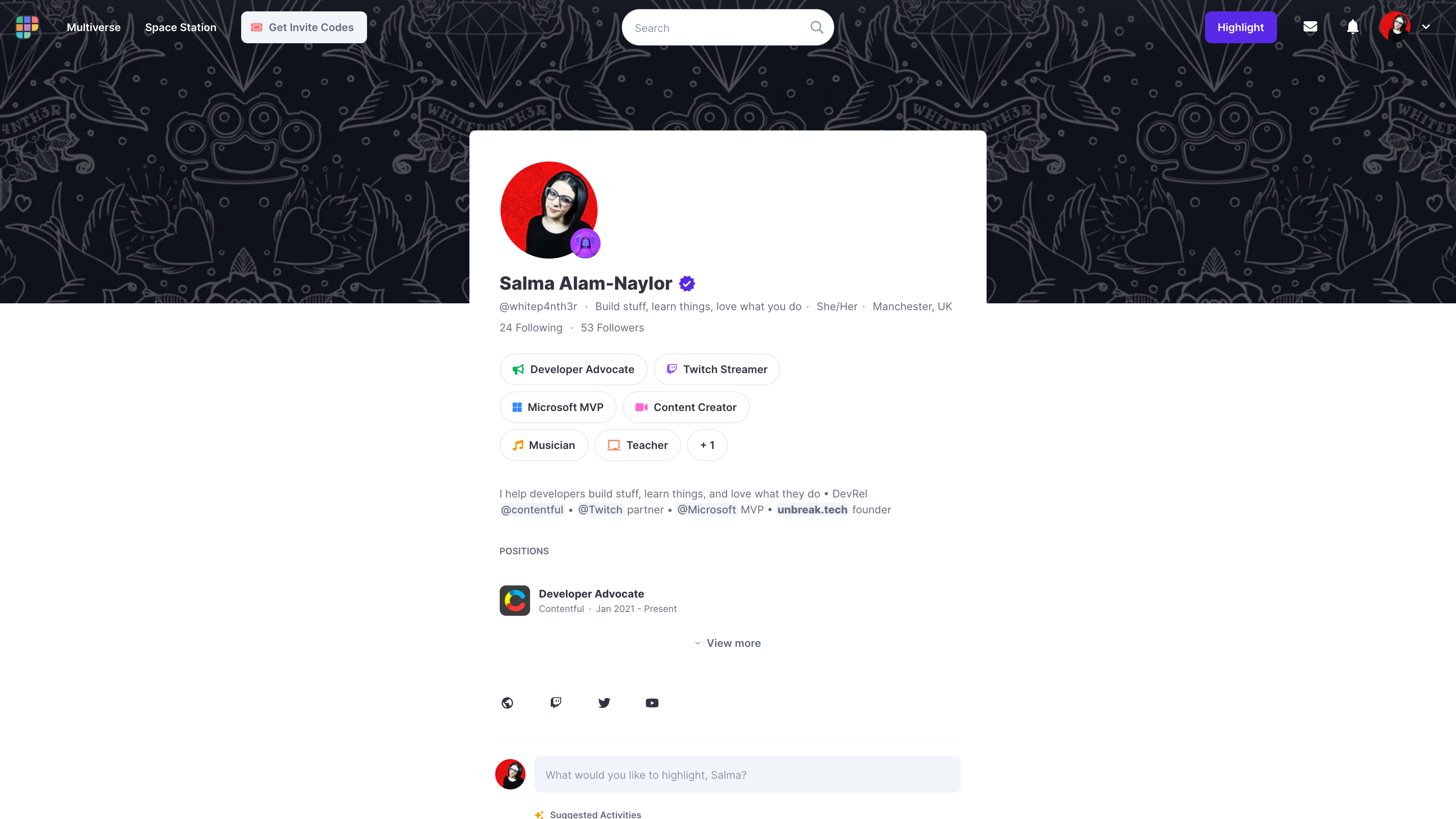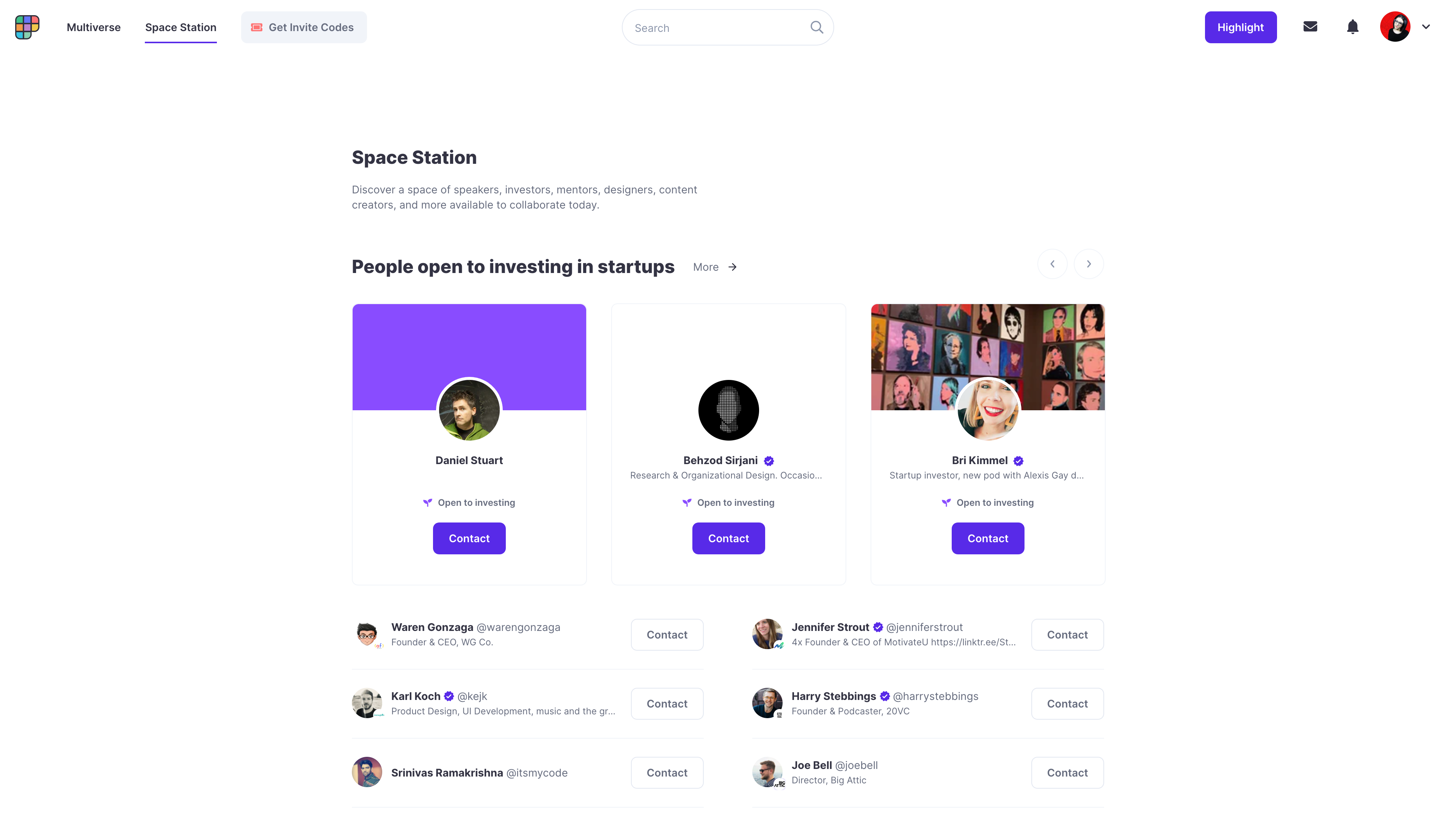Why I love Polywork as a developer advocate — and it's not for the reason you think
When Polywork launched in April 2021 as a “place for people to express who they are” — I initially sighed with apathy at the thought of yet another social network to maintain in order to stay relevant as a public figure in the tech industry. All the cool kids were already early adopters of this new invite-only platform. And so, naturally, I had to get my hands on an invite code — if only to reserve my username.

If you'd like to join me and the cool kids and skip the waitlist already, sign up to Polywork to get early access using this VIP link. Not convinced yet? Let's take a look at why I like Polywork.
I see Polywork as a successor to — and respite from — the antiquated professional network that is LinkedIn. So before we talk about Polywork, let’s talk about LinkedIn.
I don’t really use LinkedIn. I maintain a profile for historical reasons and that’s it. The nature of the seemingly random home feed algorithm — where I’m inundated with excruciating faux-inspirational stories of the constant grind of the corporate machine that an ex-colleague clapped for two months ago — has encouraged me to actively avoid it.
All my “connections” on LinkedIn are ex-colleagues and recruiters. I have no desire to “network” or reach out on a platform filled with surveys about whether virtual interviewees should be allowed to drink a glass of water on camera or what biscuits or cookies are best to please everyone in an office.
In the past, I’ve only really used LinkedIn when I’m actively searching for a new role. So how is Polywork different?
Polywork claims that:
[E]xisting networks fail to empower us to represent who we are. They’ve suppressed our identities to a single arbitrary label — a job title.
And when you look at my LinkedIn profile, you can see just that. A long list of job titles and dates. And whilst I could flesh this out in a similar way to a traditional resume with bullet-points and lists of responsibilities and achievements — LinkedIn doesn’t inspire me to do this.
There’s an activity feed somewhere on my profile, but what I’ve posted is mashed together with all the other posts I might have liked or commented on. My story is fragmented and disjointed. On more than one occasion I’ve sifted through my activity feed to “unlike” anything that doesn’t make sense in the context of my professional story.
And as of 2021, I stopped interacting with posts on LinkedIn altogether.
Polywork believes that “by empowering people to tell their story and connect with others we might be able to make the world more productive.” And whilst a profile page on Polywork does include a list of previous job titles and dates — this is not Polywork’s purpose. Polywork wants you to tell your story.
We all do such a wide variety of wonderful things, personal and professional, within our 9-5pm and outside of it.
Polywork is built around the highlights you choose to share on your profile. These could be work-related, non-work related, semi-work related — it’s up to you. You can tag collaborators, categorise highlights with activity badges, include links to things you’ve created, or post a record of professional or personal successes you’d like to remember and celebrate. As a Developer Advocate, my activities are extremely varied. Polywork is a place that lets me showcase the variety and diversity of what I do — both as part of my job at Contentful and as an independent tech content creator.

Some of the different types of highlights you'll see on my Polywork profile are:
I’m a big fan of owning my own data, so Polywork could never replace my personal website. However, some of the highlights I’ve published don’t necessarily feel worthy of a blog post on my website. It’s satisfying to see the variety of things I have created and achieved — all in one place without any unnecessary noise.
Polywork also offers a platform to connect people via different types of meaningful collaboration and activities. This has kind of re-packaged networking for me and put a nicer spin on it. Rather than meeting people for the sake of meeting people, you can advertise yourself as open to particular types of collaboration and activities, and find other people who are open to the same.
Want to brainstorm some ideas? Want to engage in activism for political change? How about beta-testing some new products? Are you available for guest lecturing or investing in start-ups? How about some volunteering? I really like the way Polywork has positioned the collaboration activities. It’s not just about your current role title. What’s more, this does a great job of filtering out all the noise and unwanted communication that other social networks can facilitate.

I've had some people reach out to me via Polywork who I wouldn't have otherwise met in my existing networks — so I can vouch for Polywork fostering more varied online communities as well.
Highlights are great. Finding new people to collaborate with is great. But what’s the real reason I like Polywork?
In the 2020 movie, The Social Dilemma, Dr. Anna Lembke says:
Social media is a drug. I mean, we have a basic biological imperative to connect with other people. That directly affects the release of dopamine in the reward pathway. Millions of years of evolution [...] are behind that system to get us to come together and live in communities, to find mates, to propagate our species. So, there’s no doubt that a vehicle like social media, which optimizes this connection between people, is going to have the potential for addiction.
Those of you who know me well, know that I really don’t enjoy social media. I don’t use Facebook. I don’t use Instagram. I don’t use Snapchat or TikTok. And I only use Twitter to talk about my work as a Developer Advocate (because, honestly, I feel like I have to).
The concept of social media is rooted in manipulating people by creating chemical reactions in their brains so that they spend as much time as possible on the platform. One of the first growth-hack leaders at Facebook, Chamath Palihapitiya, says in The Social Dilemma:
[W]e want to psychologically figure out how to manipulate you as fast as possible and then give you back that dopamine hit. We did that brilliantly at Facebook. Instagram has done it. WhatsApp has done it. You know, Snapchat has done it. Twitter has done it.
Why I really, really like Polywork is because they’ve made a conscious decision to stay out of the dopamine addiction racket. You can’t like my stuff on Polywork. And I like that.
Polywork empowers me to tell my story. It’s not fighting for my attention. It feels authentic, slightly warm and a little bit fuzzy. I’m curious to see where Polywork will go and how it will grow.
And if you’re curious too, you can skip the waitlist and sign up to Polywork to get early access using this link: polywork.com/invite/whitep4nth3r.
View my Polywork profile here, and as always — build stuff, learn things and love what you do.